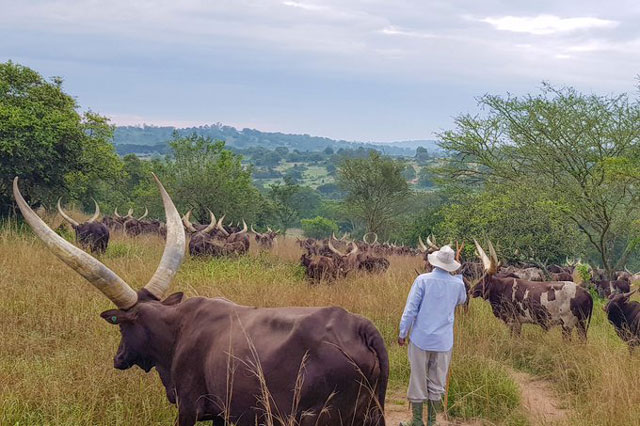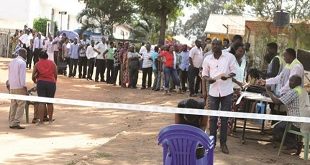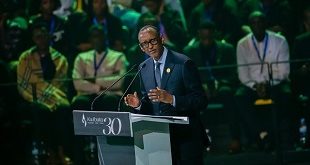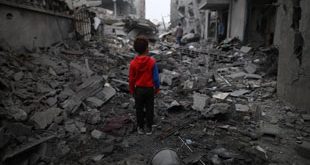
Entebbe, Uganda | THE INDEPENDENT | President Yoweri Museveni has responded to social media comments made after he concluded his nation-wide wealth creation tour.
In the Ugandan President’s missive, he said that he hoped that through exchanges of views, a consensus will be generated on how to move the country forward.
Museveni’s letter in full:
Ugandans and Bazzukulu,
I thank all of you for responding to my message of 10th August 2019.
Joshua Sabahororo, Yusuf Kaggwa, Lubega Brian, Planner Felix Ociti, Emuron Sam Wilfred Obai, Sunshine Lucky, Owen Akampe, Happy Innocent Amooti , Godfrey Ahimbisibwe, Moses Semakula , Robert Tukamuhabwa, Noble Katumba, Mosh X Zee , Richard Nkuru, Grace Njawuzi Namanda , Turyasingura Evan, Mpeirwe David, Fred Kazoora, Akiiza Pamenah, Mery Mery, Tirop Tatae Ngochoi, Luggya John Prim, Ataho Yusuf, Lisha Sophy Jeremiah, Kagire Danson, Ashaba Datiphin, Asiimwe Abdulukadir, Fidelis Bukare, Ampumuza Joram, Oliv Wytins Da Comrade, Ahimbisibwe Dickson Nrm, Tumwebaze Alex , Dorothy Mbabazi, Bwogibukare Denis , Ezekiel Ruhinda, Gilbert Nyadru , Joseph Ayesigwa , Akankwasa Obed, Mastko Midraji, Komugisha Doreen, Benjamin Kokoi, Enid Kawala, Ratibu Abdul, Innocent Muramira , Paul Kahiga, Rapheal Gaudy Masika.
Also; Luvusi Edgar( via twitter @LuvusiE), Kigozi Lubwama (@HENRYKIGOZILUB1), Kayiwa ( @Kayiwa85802119), Manyang Rieth (@BithPeter), Easyboy Surait dollar 2019 (@easyboysurait), Bakka George (@GoergeBakka), Kimbowa Francis (@Kimbowafrancis), Ziraba Rugoosi (@ABHAYZIRABA), Bamwiine Andrew (@AndrewBamwiine), Lutaaya Geoffrey (@glutaaya597), Gordon Sentiba (gsentiba), Black Trunks (@BlackTrunks7), Abu Tahir (@BadrMwanje), and others whose responses I did not see, apprecieted. I am very happy for the appreciation.
It is important that, through exchanges, a consensus is generated on how to move forward. The NRM, over the last 56 years has, concretized its views on socio-economic transformation and we are happy to share them with everybody. We are also interested in their responses. In a number of cases, these views have been implemented and caused big changes in societies. Our strategy is correct.
Peter Opio had an opinion that cotton, even when grown on one acre, if it is intercropped with expensive legumes, can still make good money for the family. John Musinguzi of my office, working with Dr. Suruma and Dr. Muyingo Steven, will analyse that idea and give me a report which, then, I will share with you. Remember that I am fully supportive of Cotton growing; but only by those who have 10 acres or more or institutions like Prisons, Army or UDC. What I do not want is for families, with small pieces of land, to be bogged down with growing cotton, tobacco, sugar-cane, tea, keeping the indigenous cattle, growing maize, as stand-alone activities and continue with poverty. If the “short grassland” areas cannot grow coffee, then I have recommended fruits (oranges, mangoes, pine-apples) and other high value activities as per my many documents that I have written. That is why we built a fruit factory in Soroti, the first of its kind in that part of Uganda. Ugandans did not know that fruits are a cash-crop. Yet, they buy packed juices from South Africa etc.
Agnes Asiimwe hit on the correct idea that wealth and jobs do not only have to come from land. Very true. In my documents, I always talk of the four sectors of wealth and jobs: Agriculture (commercial), Industry (factories), Services and ICT. The latter 3 need much less land than Agriculture.
Felix Ociti confirmed my observation that in his village of Idipi, people have food to eat but many families cannot send children to school because of lack of money. This is precisely the issue. Tic me cam keken is marac (working for the stomach only is bad). I will, however, send a separate message to all of you on education.
Ochen Tonny wants us to revive the Lira Spinning Mill. Following the collapse of the small modern sector in Amin’s time, when the NRM came to power, we carefully studied modern economics. We found that it was easier if we, where possible, relied on the private sector. In the area of Cotton and its products, we have already succeeded with the Fine spinners, Nytil and some other factories. They run better if they are owned and managed by the private sector. I am sure that we shall succeed in getting a private sector operator to run the Lira Spinning Mill.
@Rhone96976772 President @KagutaMuseveni asks that we share these images to you in reply to your comment on his #M7WealthCreationTour message. He is working on a final reply for you and others who raised different issues. It will be out shortly. pic.twitter.com/AAXJlT5BkN
— State House Uganda (@StateHouseUg) August 17, 2019
Semanda John said that cotton has more value than coffee, etc. I never said that cotton has no value. In order to inform Semanda and others, be informed that cotton gives us: clothes; cotton wool and bandages for medical use; the cotton seeds produce cooking oil, oil for making soap, animal feeds; and cotton linters produce gun-powder (nitro-cellulose). Indeed, Uganda is making all of these products or will make them. The question, however, is: “Who should grow the cotton? The small farmers of only 2 acres or the medium and large scale farmers?” Will the economics work out for the small farmer? That is the issue. Otherwise, cotton is a strategic crop that we are supporting. That is why the production now is at 200,000 bales, having grown from almost zero bales in 1986.
Bahati wanted to know why Co-operative Societies collapsed. Co-operatives had problems, not only in Uganda, but in other countries as well. In 1968, Mwalimu Nyerere had to appoint a Commission of Enquiry into the Co-operative Movement in Tanzania. You read what that Commission found. In Uganda, there was the additional problem of wars. However, even without war, one of the problems was having co-operators (members) who did not know how to read, how to write and how to count. The society, then, would be run by the few educated people in the community as secretary managers. They would, then, use the lack of knowledge of the majority to cheat the bigger membership. This disequilibrium has been solved by the NRM’s boona basoome (education for all). Future and current co-operatives will fare better because the co-operators are educated.
Nevertheless, all be informed that even when the co-operatives were active, the problem of tic-me-cam- keken, erikolera erirya rissa, okukolera ekidda kyonka, etc., was still acute if not more acute, then, than now. Our research team can give us the figure of the households that were in the money economy and those that were not by, for instance, 1970. In my essay, I gave the data of the 2 parishes of Ntungamo: Nyaburiiza and Kikoni by 1954. There were no co-operatives in that area and okukolera enda yonka(working only for the stomach) was 100% for the households. Co-operative Societies (including SACCOs) are now being formed on a better basis because of the education promoted by the NRM.
Rui Masite, greeted me in the Swahili of Kenya. I thank him for appreciating the view. It is on account of diligent bush clearing. We weed out the bad bushes that suffocate pasture and only keep the good nitrogen – fixing and shade-creating trees such as: eminyinya (acacia abyssinica), emitongore (acacia gerrarddii), emisisa (albizia coriaria), emishebeya (albizia gummifera and albizia bracteata), emikoma (Grewia mollis and Grewia trichocarpa). That is why the view is good. I was not alone. The cameraman just captured me alone. Bush clearing is very expensive; but it has to be done.
Following a nation-wide wealth creation tour, where I preached commercial farming, I have driven to Kisozi, Gomba District to check on my country farm. pic.twitter.com/2vjaT36lCu
— Yoweri K Museveni (@KagutaMuseveni) August 6, 2019
Emmanuel Odeke is not fully informed. When the NRM came to power, there was almost no factories. That is why there was a severe shortage of everything: soap, sugar, paraffin, sodas, milk, etc. Where were the functioning factories? The NRM has caused the building of many more factories than ever before. We revived many of the old ones (e.g. the sugar, the soda and the textile factories); but also built new ones.
Samuel Lugave says that “a whole President” is looking after “roaming” cattle. Why not do zero-grazing? Is looking after “roaming” cows a modern farming? Yes and no. It is modern because we weeded the farms, built dips to control ticks, made valley dams to capture water, fenced the lands, etc. Therefore, those cattle are not “roaming”, it is called “free range”. If Lugave was bothered to follow what we do, he would have learnt that during Easter, I launched a new campaign. This was to stop free-range grazing. This is, however, economics. We move cautiously because expenditure is involved. Nevertheless, where we are, is far from where we started from. That is why milk production has gone from 200 million litres to 2.5 billion litres.
Mayanja Sulaiman is involved in incredible superstition that the solar power centre we launched in Kabulasoke has dried the rain. That is not true. If the rain did not come, it had nothing to do with the solar energy station.
George De World lambasted my page handler for giving unbalanced information. What is unbalanced? Give examples, please. We talk of the 1900s because they are connected with our present. I am the one who wrote that piece, not the handler.
Prince Abdu Karim was unhappy that the green that has been bush-cleared by my efforts now belongs to cattle while some people in Lusanja have no land. Agricultural land is for agricultural production, not just for human habitation – building houses everywhere. That is why Uganda does not import – food. Or you prefer that we just build houses everywhere and we import food? No, where the people listen to the NRM advice, we advise families to build on one spot and free the family land for production – livestock rearing or crops. This is what we have been doing since the 1960s. We are now advising all Ugandans that care to listen to, where applicable, shift from free-range to industrial farming. Of course, this involves money. We started with pilot schemes. Prince Abdu wants to know where we got money from to buy “ebyalo” (villages) where we keep cattle. First of all, all the indigenous Ugandans had free land where they were settled (obutaka) since time immemorial. With colonialism, changes occurred ushering in mailo, lease-holds, etc. In 1967, after my A-levels, from my temporary teacher’s salary, I bought Rwakitura, etc. etc. I did this because I do not squander money on alcohol, discos (ebinyumo) etc. I also go to difficult areas where land is cheap. I do not hang in towns unless I am detained there by duty. Land should not have been a major problem in Uganda. The main problem is ignorance and bad human practices.
Canary Walimbwa condemns the hungry vultures in the Government that fail government programmes. That is partly true. However, on the Government side, we have put the money aside. Shs 272.65 billion for OWC; Shs. 38.7 billion for Women fund; Shs. 65.6bn for the Youth Fund; Shs. 47.25bn for Micro-finance; Shs. 13bn for Innovation. This is a total of Shs. 437.2 billion per year; Year in, year out. If the present channels have a problem, we shall use new channels, including the SACCOs handling their own money directly, instead of going through middle-men. We are now going to add new funds: zonal innovations, myooga (trade) funds and the leaders’ Saccos. We are now advising every mwooga to form a district-wide Sacco so as to, if necessary, handle the money yourselves. The money is there and has been there for many years. If the routes it is passing through have a problem, we shall get new routes.
This answer also caters for Zion Ssozi’s question.
Horan Nsubuga is saying my clansmen have grown wealthy by stealing and not by engaging in wealth creation through commercial agriculture, industry, services, ICT. Mr. Nsubuga, I bought Rwakitura in 1967. Whose money could I have stolen then? What power did I have? The transformation that took place in parts of the cattle corridor, actually started in 1966 and, to some extent, before sensitization. Which clansman of mine was in power, then, to steal government assets, oil money, mines money, donations from abroad? The people of Kalangala have woken up and are earning good money from the project of palm oil that we gave them. Are they my clansmen? The people of the remote Bundibugyo are earning good money from coffee and cocoa and want to start a chocolate factory. Are they my clansmen? Some families in Masaka are earning good money from coffee because they have listened to our advice. Are they my clansmen? The People of Nwoya, some of them working with entrepreneurs from outside, are transforming that area with huge modern farms. Are they my clansmen?
Angel Jaspa, do not worry. I was not alone. I was just standing in front of the cameraman, waiting for the cattle so as to view them as darkness was closing in.
Kasoma Juma thanks me for the work done. He, however, wonders why some Ugandans have not changed. It is partly the likes of Horan Nsubuga that divert our People’s attention. It is caused by “false prophets”. Jesus faced the false prophets and the Pharasees. So shall we, the false prophets.
Nabulime Prossy says that she knows that my land is in Rwakitura. Therefore, the land I am showing is Government land. Wrong. I have land in Kisozi. Yes, it is true that there is a Government Ranch nearby that I spied for the Government when I bought my land there in 1990. Nevertheless, I have my own land in the Kisozi – Ssembabule district. Having bought my land in 1990, I advised the Government to buy the bigger land nearby.
Owamazima Robert talks of Government people that terrorize Ugandans. Ring the numbers of Nakalema and report those criminals. You will see what we shall do with them. You also have elected leaders everywhere. Why do they keep quiet if your allegations are true?
Tuhurirwe Naboth talks of the coffee prices going down. Let Honourable Ssempijja comment on this. What I know is that even when the coffee price comes down, it is still much better than the other enterprises.
Norman Ataho says that he has got the message but has no land. When I went to Gomba in 1990, the land was UGX 250,000 per acre per annum. It has now gone up. You can even do manual labour, you are paid and buy a few acres of land. Our people who go abroad, do manual labour, called Kyeyo. Why do Ugandans do manual labour abroad but not here? In my youth, I did alot of manual labour: milking cattle (Kukama), Kweshera (watering), building cattle fence (kuzitira), wrestling down the cattle (kukwaata), and cultivating (kuhinga).
RC@Rhone96976772 talks of Cotton products that sell for $10.50 in the USA. Uganda would be producing those pieces if Museveni’s Government had not “crippled” industry. My staff, kindly show Rhone the cotton products that Uganda is producing. Moreover, we could not “cripple” what was not there. It is us that revived the cotton and the factories.
Shakib Kiko says that Jajja asosola (discriminates). Kusosola whom? Clarify, please. I introduced immunization for the Bazzukulu, universal education for the Bazzukulu etc. The Bazzukulu are supposed to study free. I will send a message on this.
Mukwaba mocks my bottle- irrigation. Go to Kawumu and see what it did. I planted in the dry season but the plants grew. We have, of course, more modern schemes: Mobuku, Doho, etc. These do not exclude the simpler methods like the bottle.
With Samuel Lugave, I forgot to comment on his additional idea of cross-breeding our Ankole breed with foreign breeds. That will never happen with the herds you saw. The Ankole breed has superior qualities that I will never interfere with by cross- breeding. Their butter content in milk is 5.52%-10% while that of Friesian is 3.7%-4.5%. Besides, they have yellow fat as opposed to white fat. White fat has alot of cholesterol while the yellow fat, is actually, anti- cholesterol. Our indigenous cattle are superior to the foreign breeds. Even in the quantity of milk, many of my cattle rival the friesians. I, therefore, took it as my historical obligation to concentrate the superior genes of the Ankole cattle so that, with time, they may help our small farmers with richer milk, better beef and less cost of maintaining because they are quite immune to the livestock diseases and eat less. Moreover, my herds are descended from one of the seven cows my great grandfather, Kashaanku Ka Kyamukaanga, Ruhirimbura, “saved” (okuhonoka) in the rinder-pest of 1893. This is modernized and positive bujjajja (heritage, ancestry). I intend to, similarly, concentrate the genes of enkoromoijo (zebu). They are quite hardy and some of them were good milkers. The Banyakore, who had gone to Teso and Lango and Acholi (Bukiri) to work for milk (Kushuumba, Kusheenga) brought back to Ankole some samples that I saw in the 1960s.
 The Independent Uganda: You get the Truth we Pay the Price
The Independent Uganda: You get the Truth we Pay the Price



This piece is excellent response,Mr President.It is sober, articulate and fair to previous commentators observations.You engaged my my well and I am persuaded to share the same with my villagemates in Kenya.Thank you, Knowledge has no boundaries if disseminated as you have done.
THE victor always writes their own history, and the narrative always suits their case.
M 7 can now decide the year he was born, where he was born etc etc.
Why now come to clarify how he bought Rwakitura in 1967, at age only 23(???????) when he had hardly worked, and to the best of anyones knowledge a NEEDY student who was constantly helped out by relatives, and whose “father” was not known to be wealthy.
IF and IF he bought the property at that time, then all it tells us that he has been a THIEF for much longer than we previously thought.
IF any one today, just out of university bought land the size of Rwakitura, we would highly question the source of their wealth. And it terms of value, no matter what the price of land today compared to then, it is just as hard to raise money to buy an acre of land today as it was then.
AND once a thief, one who even JANET said stole milk, ALWAYS a thief.
I like this article and I will read it. I already shared it with one person.
Great article..
Mr President
Good work Mr. President. Knowing your people, their history, heritage and their views on economic development is one of the critical way of unlocking economic potential of the masses. The insights informs the budget priority areas to spur sustainable growth for your country and by extension East Africa region.
If its a fact that the transformations in western Uganda started in 1967….then its not NRM to claim the acclaim.
The author of this article would sound more genuine if he would have the courtesy to credit the authority who initiated the transformation process that economically empowered citizens so that even a non-professional teacher of that time could afford a huge chunk of land.
Thanks
It means m7 started stealing in 1967. The most
popular thief o. the African continent
Good work Mr. President. Knowing your people, their history, heritage and their views on economic development is one of the critical way of unlocking economic potential of the masses. The insights informs the budget priority areas to spur sustainable growth for your country and by extension East Africa region.
I deeply enjoyed reading the response and pray to benefit from the funds meant for women! Not sure what it takes for women in karamoja to benefit from it. The whole message is so educating.
If Ugandans can’t appreciate the work our beloved president has done for us find another country to go to. You talk of his money , he has it because he worked for it .
The youth please let’s follow Museveni’s advice we will leave happily in this world
Very educative piece. Thank you H.E. Let those that want to listen & the ones that don’t, trace their vocation elsewhere. Agriculture is the way to go & the only channel thru which we Africans can get liberated from poverty. And we should do this with passion & thru our own sweat! I have one issue though; Foreigners storming our continent with new seeds, fertilisers etc. & the main culprits are Netherlands & USA. Let’s not allow GMOs on our beautiful & fertile soils.
Good Job Mzeey, You Still Stand Better Than All Of Them, LongLive NRM.
Looking forward we all wake up, take these lessons personal, invest for the good of our families and our country Uganda
I wish there was compulsory course unit called musevenilogy biblical kahima so educative banange Ugandans we are so lucky to have aresource called museveni long live his Excellency love long isheitwe rugaba
Except for sycophants and people who don’t think for themselves; Mr. Museveni has told so many lies such that, even if he starts telling the truth now, no intelligent person can believe him. That is how e.g. the Kategaya (RIP), Matembe, Bidandi Ssali, Amamnya Mushega, Luzindan, Dr. Besigye, etc. walked away in great disappointment.
E.g. Muzee Byanyima who knew Mr. Museveni to his bone marrow, characterized his “strong point” as “looting”. And the man’s weakness being ” self-importance and telling lies”.
Another e.g., if Obote (RIP) was indeed a swine (offensive communication) how could Museveni have bought the Rwakitura land, when working under the same Obote inept leadership?
Mr.president you are so passionate and elaborate on your message about wealth creation in Ugandan communities but biggest huddle that you struggle to overcome in Uganda is stamping out corruption.
Thank you Mr President. It’s Juma from Kenya. While the content of your message seems to be addressed to Ugandans, I believe this should just be shared across the whole of Africa. We have similar problems and a response well articulated can actually gelvanise a common action towards these problems .Its a good piece which can school the leadership of my country which has no Idea about what works best and what we should adopt against what we should abandon.
I can assure everyone that the president is my role model. He foresaw the future rwakitura. We know he was not a born of the place. Thank for revealing how you got the land.
Mr.President if you restored the Kingdom of Ankole,it would help on preserving the culture and traditions of Banyankole. This would cut across even agriculture. There are traditional Ankore crops and animals that Banyankole can’t part with.ie the Ankole long horned cattle, Matoke, millet etc.
Leave muze and bother your problems
I still think we should copy our astute leaders